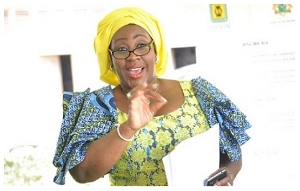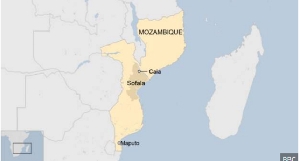- Home - News
- TWI News | TV
- Polls
- Year In Review
- News Archive
- Crime & Punishment
- Politics
- Regional
- Editorial
- Health
- Ghanaians Abroad
- Tabloid
- Africa
- Religion
- Election 2020
- Coronavirus
- News Videos | TV
- Photo Archives
- News Headlines
- Press Release
Business News of Saturday, 24 November 2012
Source: The Accra Times
MPC Retains Rate @ 15 %
By- Mohammed Saani Ibrahim—
The Monetary Policy Committee (MPC) of the Bank of Ghana [BOG] last week maintained its policy rate at 15 percent. The Committee attributed the reason to maintain the rate to balanced risks to inflation and growth.
Briefing pressmen in Accra during the Committee’s 53rd Press Conference, Dr Henry Kofi Wampah, Acting BOG Governor, noted that price developments suggest diminished inflationary expectations as reflected in the bank’s latest surveys.
BOG’s inflation forecast indicates that inflation has been well anchored within the projected range of 8.5 (plus or minus 2) percent and is likely to end 2012 in a single digit.
He said inflation outcomes had been in line with expectations though some upside risks emanating from the external sector and fiscal operations were noted. In particular, Dr. Wampah said, risks to the outlook were identified as the high wage bill, arrears and fuel as well as utility subsidies.
The Committee further observed deterioration in the balance of payments on account of weak export growth, rising imports and short-term capital outflows.
Exchange rate pressures, which threatened macroeconomic stability and heightened inflationary pressures during the first half of the year, have eased largely as a result of the policy measures implemented, the BOG Boss said .
“In the past two months, we have observed some marginal appreciation of the cedi relative to the US dollar. The reduced volatility in the foreign exchange market has helped to lower inflation expectations in the near term” .
On the growth outlook, he said, positive developments in the business and consumer confidence indices, private sector credit expansion, and improved credit conditions were upside risks which could be moderated by the on-going energy sector challenges and global uncertainties.
The credit to the private sector continued to expand providing additional impetus to economic growth. The updated CIEA reflected increased economic activity although at a moderate pace relative to last year
Dr Wampah said fiscal consolidation was crucial at this stage to preserve the resilience of the economy against these risks, noting that the arrears related to wages had been largely cleared and therefore unlikely to pose additional risks to the outlook.
“Going forward, the Committee will continue to monitor the economic and financial developments and respond appropriately to preserve macroeconomic stability,” he said.
On government fiscal performance, Dr Wampah said the execution of the budget for the first three quarters of the year resulted in an overall budget deficit of GH¢5.1 billion (7.3% of GDP), against a target of GH¢4.3 billion (6.2% of GDP).
.










